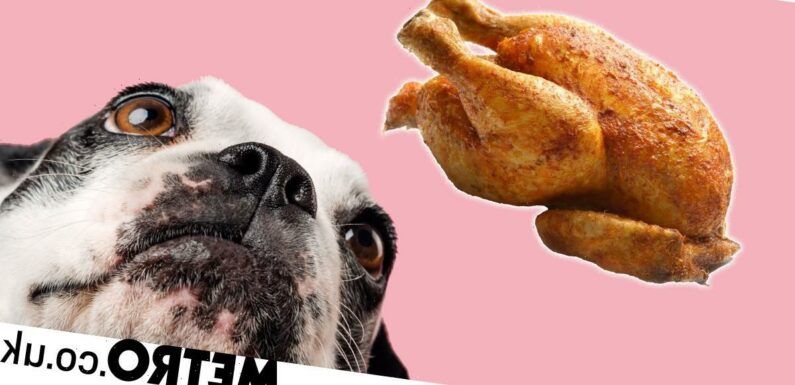
When you think of Christmas animals, a red-nosed reindeer, a donkey, or maybe even a penguin might spring to mind.
But while dogs might be lower down on the list, for many of us, our faithful pooches have a big part to play in the big day.
Most families will try and get their dogs involved in the celebrations, whether that be through new toys, Christmas jumpers, or festive food.
However, it’s important for owners to be on high alert.
With an increased amount of food around the house, a dog’s senses will be heightened. And while it may be tempting to reach under the table and give your dog a Christmas treat, it is important to remember that they can have adverse reactions to many human foods.
Thankfully, Dogs Trust have released information on all the foods your dog can and can’t eat.
Safe foods
- Carrots, parsnips, sweet potato or peppers – these are all good raw, steamed or baked.
- Apples, pears or melon – great for dogs raw or frozen, without their pips (or melon rinds).
- Cooked turkey, chicken or salmon – fine in small amounts only, no bones or skin.
- Peanut butter (xylitol free) or frozen banana – these make a distracting tasty treat, especially in a long-lasting dispenser.
Unsafe foods
- Rich, fatty foods – roasted meat, sausages, gravy or anything with cream in can cause an upset stomach.
- Meat bones – turkey legs or cooked ham bones can splinter or cause gastro-intestinal issues.
- Vegetables like onions, leeks, shallots and fruit such as grapes, raisins
- Crisps or crackers – fatty and salty, these are not good for dogs.
- Alcohol, mulled wine and hot chocolate.
When to visit the vet
If your dog accidentally ingests any of the following, a trip to the vet is a must.
- Chocolate
- Grapes
- Raisins
- Macadamia nuts
- Alcohol
- Christmas pudding, cakes, mince pies
- Holly and mistletoe
- Onions, leeks, garlic, shallots, chives
The organisation advises owners to always have their vet’s number at hand incase of an emergency.
Meanwhile, Dogs Trust also has some other important festive tips for owners if you are having guests and children to your house.
‘It’s important to stick to your daily routine of mealtimes and exercise as much as possible,’ the organisation says.
‘If you’ve kept to your normal routine, then chances are your dog will be nice and relaxed by the time they arrive.
‘If children are coming who aren’t used to being around dogs (or your dog isn’t used to children), have a chat with the family beforehand to make sure the children understand how to behave around dogs.’
Do you have a story to share?
Get in touch by emailing [email protected].
Source: Read Full Article
